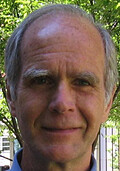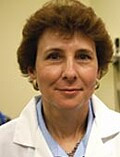This call is the second in a series introducing the new A Story of Health illustrated, multimedia eBook that harnesses the power of stories to explore the multiple influences on our health across the lifespan.
Ten percent of children in the US have asthma, costing over $50 billion/year and imposing a tremendous burden on families and the health care system. The prevalence of asthma has been increasing steadily. Some surprising things may increase risk for development of asthma in children, including: maternal obesity during pregnancy; early life exposure to some environmental chemicals and contaminants; excessive early life social stress including family violence; playing multiple sports along with higher exposure to air pollution (ozone), and; certain genetic variants that can increase susceptibility to air pollution. Traffic related air pollution, family and community stress interacting with other environmental triggers, and obesity can make asthma worse. Socioeconomic disparities have an important impact -poorer kids in a neighborhood with traffic related air-pollution are at higher risk for asthma symptoms than kids in the same neighborhood who are financially better-off.
On this call experts who contributed to A Story of Health explored the life of nine-year-old Brett who lives in Southern California and is coping with asthma. Speakers described basics of asthma and lung development, demographic trends, environmental conditions and genetic susceptibilities that can cause or exacerbate asthma, and interventions that may prevent asthma or lessen its effects. Speakers included A Story of Health co-author and science director of CHE and the Science and Environmental Health Network, Ted Schettler, MD, MPH; Rosalind J. Wright, MD, MPH, Professor of Pediatrics at the Icahn School of Medicine at Mount Sinai, and; Rob S. McConnell, MD, Professor of Preventive Medicine at the University of Southern California and Deputy Director of the NIEHS/EPA-supported Children's Environmental Health Center at USC.
Featured Speakers
 Ted Schettler, MD, is Science Director of both the Science and Environmental Health Network and the Collaborative on Health and the Environment. He received his MD from Case-Western Reserve University and a masters degree in public health from the Harvard School of Public Health. He practiced medicine for many years in New England. Dr. Schettler has worked extensively with community groups, NGOs, and collaborations throughout the US and internationally, addressing many aspects of human health and the environment. He has served on advisory committees of the US EPA and National Academy of Sciences. He is co-author of Generations at Risk: Reproductive Health and the Environment, In Harm's Way: Toxic Threats to Child Development, Environmental Threats to Healthy Aging, and A Story of Health. He is also the author of The Ecology of Breast Cancer.
Ted Schettler, MD, is Science Director of both the Science and Environmental Health Network and the Collaborative on Health and the Environment. He received his MD from Case-Western Reserve University and a masters degree in public health from the Harvard School of Public Health. He practiced medicine for many years in New England. Dr. Schettler has worked extensively with community groups, NGOs, and collaborations throughout the US and internationally, addressing many aspects of human health and the environment. He has served on advisory committees of the US EPA and National Academy of Sciences. He is co-author of Generations at Risk: Reproductive Health and the Environment, In Harm's Way: Toxic Threats to Child Development, Environmental Threats to Healthy Aging, and A Story of Health. He is also the author of The Ecology of Breast Cancer.
 Rosalind J. Wright, MD, MPH, holds the Horace W. Goldsmith Professorship in Children’s Health Research and is Professor of Pediatrics at the Icahn School of Medicine at Mount Sinai and is Vice Chair of Clinical & Translational Research in the Department of Pediatrics. She is a developmental epidemiologist with transdisciplinary training in environmental health and stress mechanisms. She has a primary interest in early life (prenatal and early childhood) predictors of developmental diseases including asthma, obesity, neurobehavioral development, and lung growth and development. A particular focus is on the implementation of studies considering the role of both social (e.g., psychosocial stress, other socioeconomic risk factors) and physical (e.g., air pollution, chemicals, dietary factors, allergens) environmental factors in explaining health disparities among lower-SES urban populations. Dr. Wright is the PI and Director of the Asthma Coalition on Community, Environment, and Social Stress (ACCESS) project as well as the Programming of Intergenerational Stress Mechanisms (PRISM) study funded by the National Heart, Lung & Blood Institute (NHLBI).
Rosalind J. Wright, MD, MPH, holds the Horace W. Goldsmith Professorship in Children’s Health Research and is Professor of Pediatrics at the Icahn School of Medicine at Mount Sinai and is Vice Chair of Clinical & Translational Research in the Department of Pediatrics. She is a developmental epidemiologist with transdisciplinary training in environmental health and stress mechanisms. She has a primary interest in early life (prenatal and early childhood) predictors of developmental diseases including asthma, obesity, neurobehavioral development, and lung growth and development. A particular focus is on the implementation of studies considering the role of both social (e.g., psychosocial stress, other socioeconomic risk factors) and physical (e.g., air pollution, chemicals, dietary factors, allergens) environmental factors in explaining health disparities among lower-SES urban populations. Dr. Wright is the PI and Director of the Asthma Coalition on Community, Environment, and Social Stress (ACCESS) project as well as the Programming of Intergenerational Stress Mechanisms (PRISM) study funded by the National Heart, Lung & Blood Institute (NHLBI).
 Rob S. McConnell, MD, is Professor of Preventive Medicine and Deputy Director of the NIEHS/EPA-supported Children's Environmental Health Center at the University of Southern California. His research interests include effects of air pollution on the development and exacerbation of asthma, and he is the principal investigator of a large prospective cohort study in the Children's USC Health Study to investigate these relationships. His work examining the associations between ozone and fresh traffic emissions with the development of asthma has contributed to the current policy debate on proper regulation of these exposures. Dr. McConnell is also interested in the effects of psychosocial stress and other social characteristics on asthma and on the application of new biomarkers of exposure to air pollutants in population based studies. He teaches the survey course on environmental health in the USC Masters of Public Health program.
Rob S. McConnell, MD, is Professor of Preventive Medicine and Deputy Director of the NIEHS/EPA-supported Children's Environmental Health Center at the University of Southern California. His research interests include effects of air pollution on the development and exacerbation of asthma, and he is the principal investigator of a large prospective cohort study in the Children's USC Health Study to investigate these relationships. His work examining the associations between ozone and fresh traffic emissions with the development of asthma has contributed to the current policy debate on proper regulation of these exposures. Dr. McConnell is also interested in the effects of psychosocial stress and other social characteristics on asthma and on the application of new biomarkers of exposure to air pollutants in population based studies. He teaches the survey course on environmental health in the USC Masters of Public Health program.
This call was moderated by Mark Miller, MD, MPH, Story of Health co-author and director of the UCSF Pediatric Environmental Health Specialty Unit.
